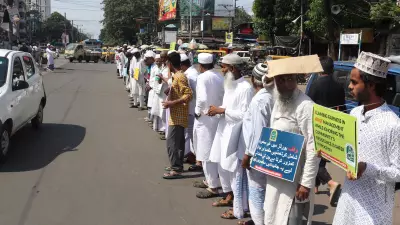
In a significant development that has sent shockwaves through Karnataka's political landscape, the High Court has put an immediate stop to the state government's recently implemented internal reservation matrix for Scheduled Castes. The court didn't mince words, describing the new system as "arbitrary" and lacking any scientific foundation.
Court's Stern Rebuke to Government
The division bench, comprising Justice M Nagaprasanna and Justice K V Arvind, delivered a sharp critique of the government's approach. The judges questioned the very basis of the new reservation formula, pointing out the complete absence of empirical data or demographic studies to justify the revised allocation percentages among SC communities.
What the Stay Means
The interim stay effectively freezes all appointments and admissions that were being processed under the controversial new matrix. This includes:
- Government job recruitments
- Educational institution admissions
- Promotions within government services
- All other benefits under the revised reservation system
Background of the Controversy
The Karnataka government had recently overhauled the internal reservation structure for SC communities through a official notification. The new matrix reallocated reservation percentages among various SC sub-groups, a move that immediately sparked protests and legal challenges from several quarters.
Multiple petitions were filed challenging the government's decision, arguing that the redistribution was not based on current population data or proper socio-economic surveys. The petitioners contended that the arbitrary allocation would create inequality within the SC community itself.
Government's Defense Falls Flat
Despite the state government's attempts to defend its decision, the court remained unconvinced. The bench observed that the government had failed to provide any substantial evidence or methodology behind the new percentage allocations.
The court specifically noted that such important decisions affecting millions of citizens cannot be made without proper data and scientific analysis. "The absence of any demographic or empirical study makes the entire exercise arbitrary," the bench remarked during the proceedings.
What Happens Next?
The stay will remain in effect until the court hears the matter in detail. The state government has been given time to file its comprehensive response, while the petitioners have been directed to submit additional documents supporting their case.
This legal development is being closely watched across the state, as it has significant implications for thousands of job aspirants, students, and government employees from SC communities. The outcome could potentially reshape the reservation landscape in Karnataka for years to come.
The case has been scheduled for further hearing in the coming weeks, where the court is expected to delve deeper into the constitutional and legal aspects of internal reservation policies.





